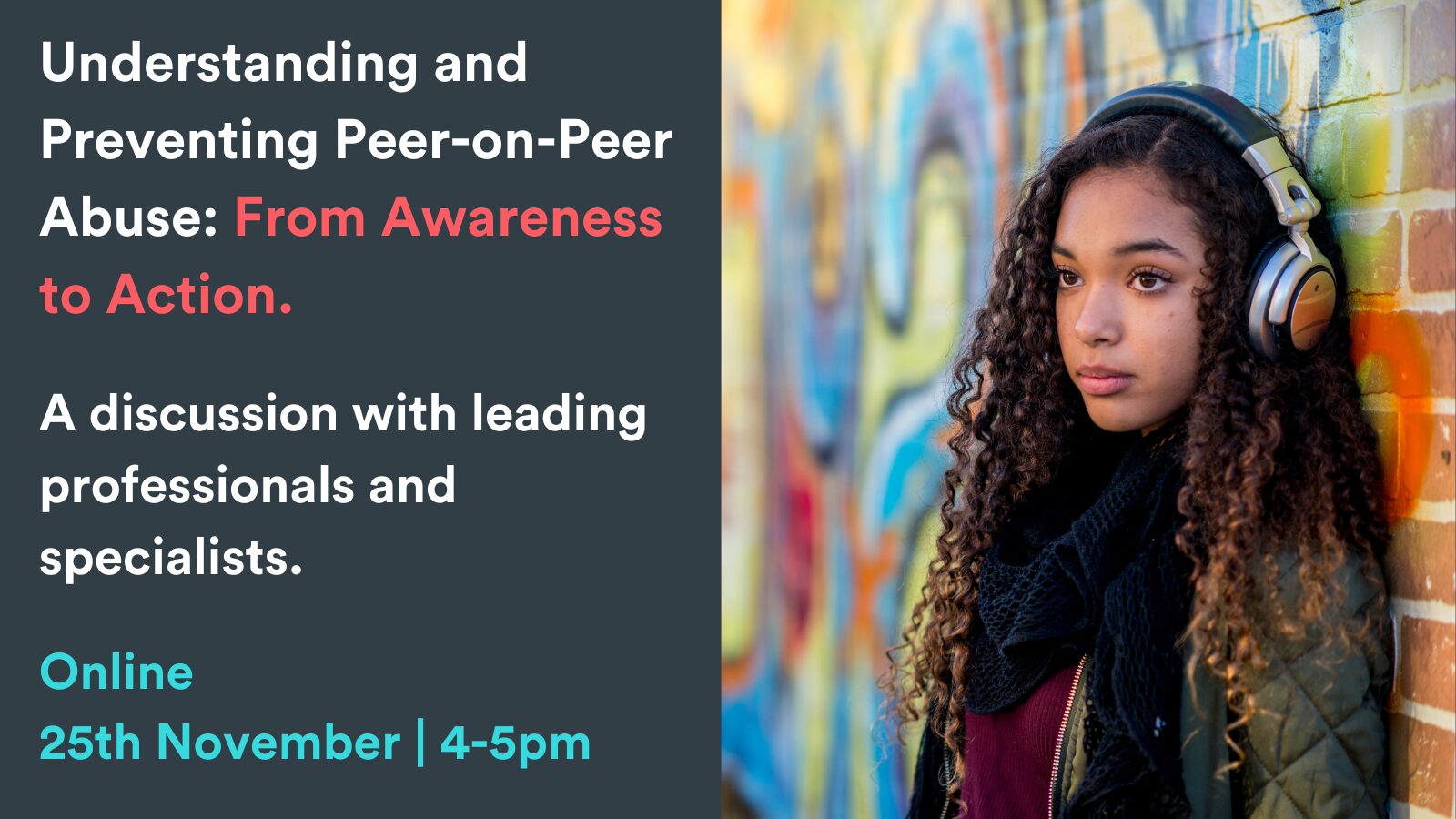
To mark the first of day of the 16 Days of Activism Against Gender Based Violence, we held a panel event on peer-on-peer abuse.
Peer-on-peer abuse is an increasingly recognised issue, particularly in educational settings. Young people are experiencing a range of things including:
- physical, emotional, or sexual abuse
- harassment, bullying, and online abuse.
A 2021 report by Ofsted revealed that 90% of girls and nearly 50% of boys in UK schools had experienced some form of sexual harassment, with many students feeling that incidents of abuse were “normalised” in school settings. In 2022, the NSPCC reported a 29% increase in child-on-child sexual abuse cases reported to their helpline.
This panel discussion covered critical insights into how peer-on-peer abuse manifests in a range of settings, its impact on young people, and the approaches needed to create safer environments. It looked at the roles of educators, parents, and policymakers in preventing and addressing this issue, aiming to equip attendees with practical strategies and a deeper understanding of creating a culture of respect and safety for all young people.
We also launched a set of films about peer-on-peer abuse created by Solace’s Young Changemakers. From online and in-person sexual harassment, to revenge porn and sexual assault on girls in their classes, the aim of the films is to educate parents and teachers about the impact of peer-on-peer abuse so that they are informed to have better conversations with young people and take positive steps to identify and address this behaviour. The young people we work with wanted to showcase this issue in order to raise awareness and begin a wider discussion on possible solutions, starting by listening to and amplifying the voices of those affected. You can watch the films below.
Our Children and Young People Team have also created a set of resources to help professionals in supporting young people below.
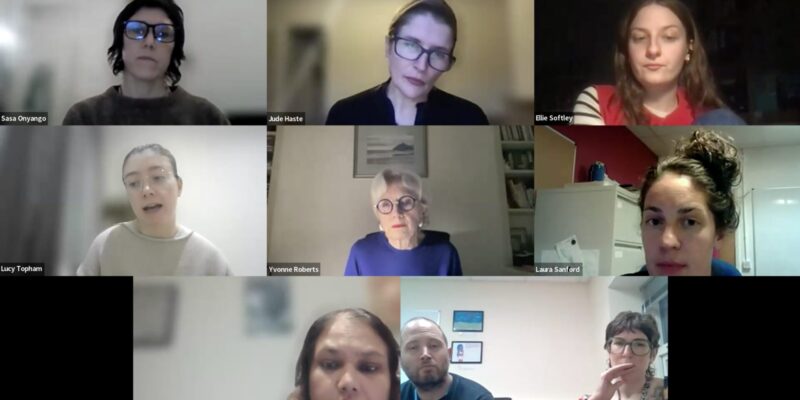
Understanding Peer-on-Peer Abuse: Webinar Recording
Watch the film launch and panel event here in full.
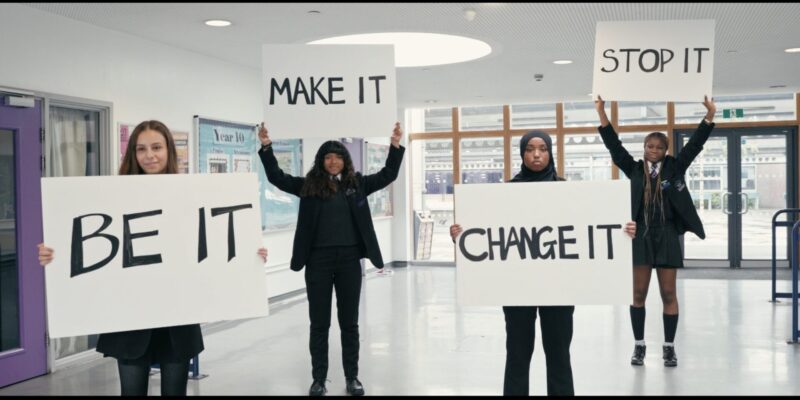
Young Changemakers films – Peer-on-peer abuse films
These short films were created by Young Changemakers from Mulberry Academy Woodside, working in collaboration with Solace’s Children and Young People (CYP) Team.
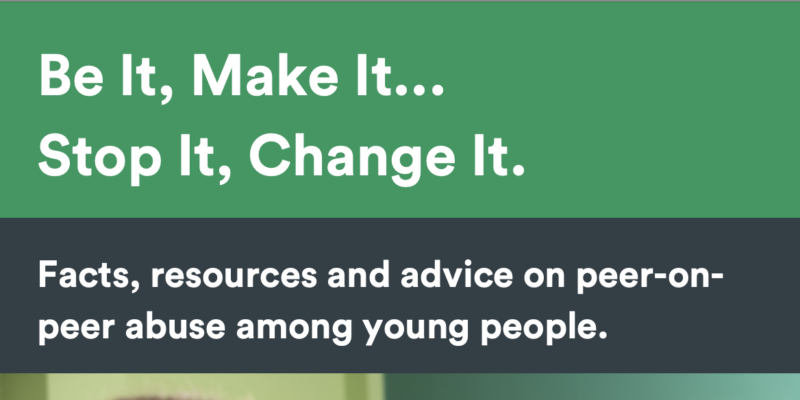
Be It, Make It…Stop It, Change It: facts, resources and advice on peer-on-peer abuse among young people
Facts, resources and advice on peer-on-peer abuse among young people
Our panel
Chair: Yvonne Roberts, Journalist, Solace Ambassador

Yvonne Roberts is an award-winning journalist who has worked in current affairs, television, radio, magazines and newspapers. The former Chief leader writer of The Observer, she has written four novels and three non-fiction books on feminism and relationships. In 2016, she became the University of Sussex’s first political writer in residence, awarded an honorary doctorate. A former trustee and chair of Women in Prison, she recently worked with the Femicide Census on a two year campaign in The Observer to better tackle violence against women and girls including femicide. She has investigated and reported on women’s rights, domestic abuse and male violence for over forty years.
Our Panellists:
Ellie Softley, Head of Education – Everyone’s Invited

Ellie has worked in sexual violence prevention for 6+ years and has extensive experience working for organisations delivering education on gender inequality and sexual violence prevention. She is a founding member of Everyone’s Invited and previously had the position of Head of Support. Over the last three years, she has designed, developed and implemented the Everyone’s Invited education programme across 100 schools, focusing her area of expertise on the rise of online misogyny.
Laura Sanford, Deputy Head, Mulberry Academy Woodside
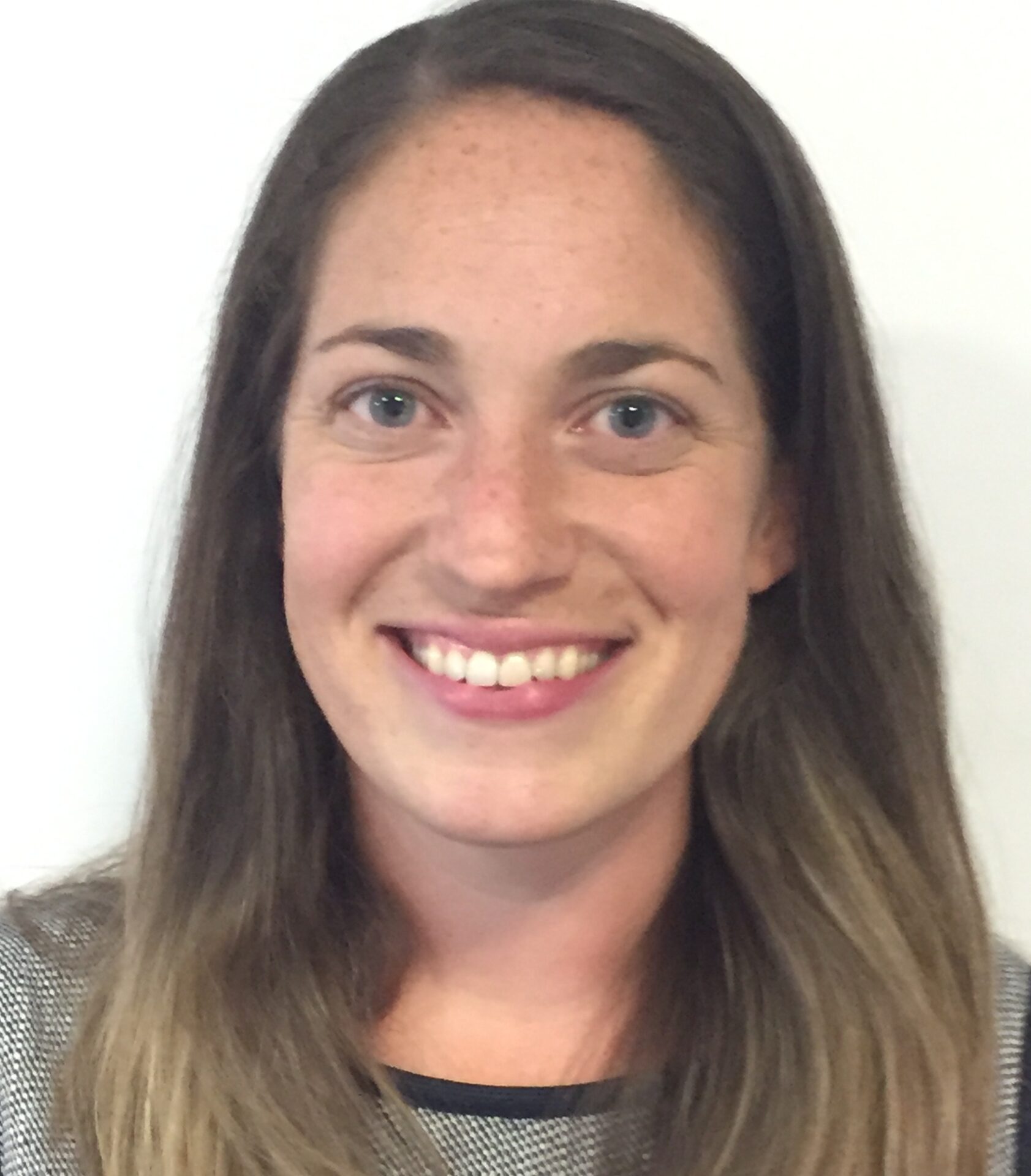
Laura Sanford is a serving Deputy Head teacher who is also DSL at an inner London school on the Tottenham/Wood Green border. She has worked in inner city schools across London and the Midlands. Laura is currently a Trustee for Tender a charity which works to prevent domestic violence, part of their work is educating students in secondary schools and PRUs. Laura has experience of working on safeguarding audits in her own and other schools across London and is passionate about keeping young people safe and giving them a voice. Laura is a proud Haringey resident and mother to two children.
NSPCC Child Sexual Abuse Team
Representative TBC
Sasa Onyango, Head of Solace’s Children and Young People Service
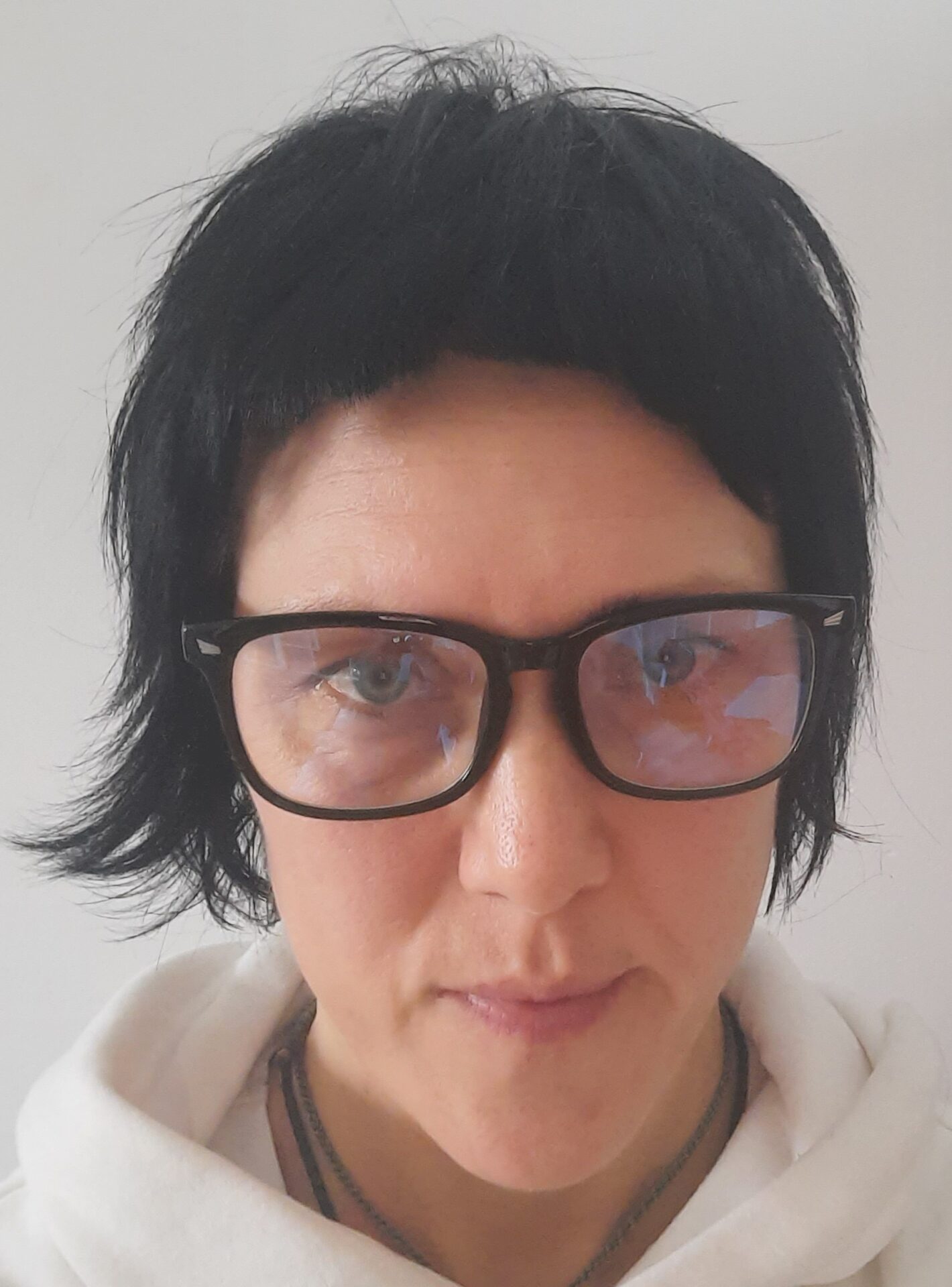
Sasa is the Deputy Head of Children and Young People (CYP) services and designated safeguarding lead of CYP at Solace. She oversees a portfolio of four very different CYP services, including crisis intervention advocacy work in Major Trauma Centres, educating mothers and children in accommodation services about the impact of trauma, a whole school approach to early intervention and prevention, and a specialist programme supporting young girls from Black and minoritised ethnic backgrounds impacted by abuse. Sasa is a trained social worker with more than 25 years of working and supporting children and young people who have experienced trauma and abuse. She joined Solace in 2011 as a Family support worker and continues to be part of the organisation as she believes in the work they do, especially seeing the difference that can be made in the lives of the children, young people and families Solace supports.
Lucy Topham – NSPCC Children’s Services Practitioner
Lucy Topham is from NSPCC’s Lighthouse team – The Lighthouse brings together physical and emotional health, therapeutic and criminal justice services under one roof, to help children and young people recover and rebuild their lives after sexual abuse. Lucy delivers the Letting the Future In service, supporting young people who have experienced sexual abuse through a 24 session based therapeutic intervention. She is a qualified social worker with experience within Children with Disabilities in a hospital setting, and previously in a child protection team within a local authority.
Bex Darby
Bex Darby is part of NSPCC’s NCATS team (national clinical and treatment services).

